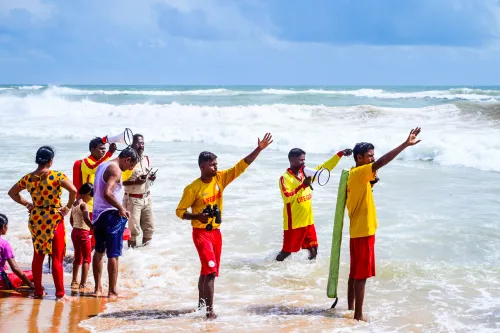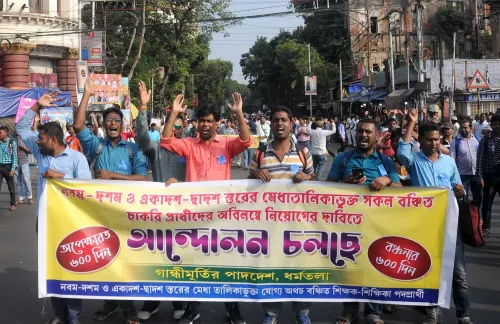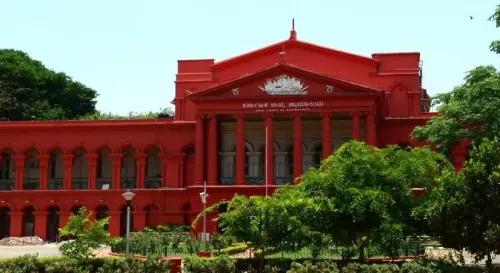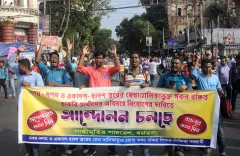Exercise Caution When Purchasing Packaged Water Bottles: Karnataka Health Minister
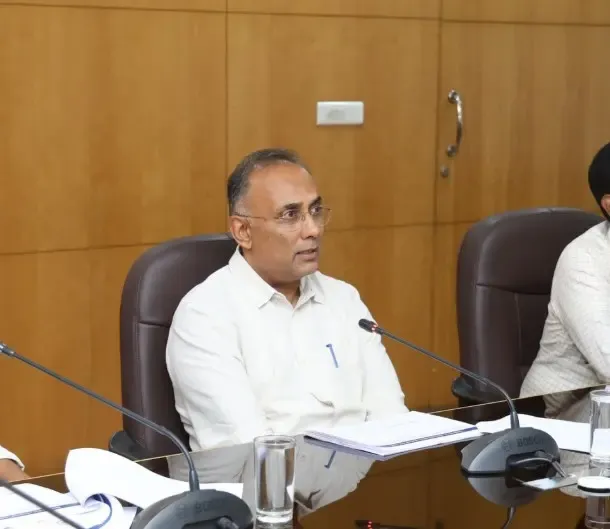
Synopsis
Key Takeaways
- Karnataka Health Minister Dinesh Gundu Rao has raised alarms about unsafe packaged mineral water.
- Testing shows many brands do not meet safety standards.
- Legal action will be taken against non-compliant companies.
- Inspections revealed numerous unsafe food products.
- Public health measures are being enhanced to ensure safety.
Bengaluru, April 8 (NationPress) Karnataka Health Minister Dinesh Gundu Rao has expressed serious concerns regarding the presence of unsafe packaged mineral water bottles in the state, urging citizens to exercise caution when buying these products.
At a press briefing in Bengaluru on Tuesday, Minister Rao stated, "It is crucial for the public to be informed. Packaged mineral water is readily available under various brand names. However, upon testing, many of these fail to comply with safety standards, which raises significant concern for us."
He further elaborated, "We are in the process of collecting legal samples from numerous packaged mineral water brands. This initiative will empower us to initiate legal actions against the companies involved. Following the testing of these samples, we will commence action accordingly."
“Some samples have been identified as substandard due to insufficient levels of certain minerals. While this may not be extremely hazardous, water samples identified as unsafe have been found to contain harmful chemicals and bacteria that pose serious health risks,” the Health Minister noted.
He mentioned that the Office of the Commissioner for Food Safety and Drug Administration, along with the Food Safety Division of the Karnataka government, has implemented measures to address these concerns.
As part of a special campaign in February 2025, a total of 296 drinking water bottle samples were collected for evaluation.
“From the 255 collected samples, 72 samples were deemed safe, 95 samples were classified as unsafe, and 88 samples were found to be of substandard quality. The testing of the remaining samples is still ongoing. In order to verify the use of artificial colors in fried green peas, 115 samples were also collected and sent for testing. Out of these, 46 samples were found safe, while 69 samples were deemed unsafe,” he added.
The Minister also mentioned that 49 ghee samples were collected for testing, with 6 samples confirmed safe.
“The rest of the samples are currently under analysis. Out of 43 Khova samples, 9 samples were analyzed, with 3 found to be substandard and 6 samples confirmed safe,” he said.
He noted that among 231 Paneer samples, 32 samples were tested, with 2 samples deemed unsafe.
“In 198 sweet samples, 2 samples were found unsafe; 4 out of 119 khara (namkeen) mixture samples were unsafe. Additionally, 46 local brands of juice/beverage samples, 39 ice candy samples, and 107 ice cream samples were collected and sent for analysis,” he continued.
He stated that 92 food production/sales units of juices, ice candy, and ice cream received notices after inspections revealed violations, with 6 units fined Rs 38,000, Minister Rao reported.
“Notices were issued to 214 hotels/restaurants for non-compliance, and 11 establishments faced fines totaling Rs 1.15 lakh. Inspections focused on evaluating pest control measures for cockroaches, rodents, and other pests,” he added.
He revealed that the Drug Administration division has taken samples amounting to 1,891, analyzed by enforcement officers for public health, with results from the Drugs Testing Laboratories in Bengaluru, Hubballi, and Ballari.
“Out of these, 1,298 samples were declared standard quality, while 41 samples were found to be of non-standard quality in March 2025. In the fiscal year 2024-25, 10 cases were filed, with 18 cases filed in March 2025 for various violations of the Drugs and Cosmetics Act, 1940 and its associated rules,” he concluded.


